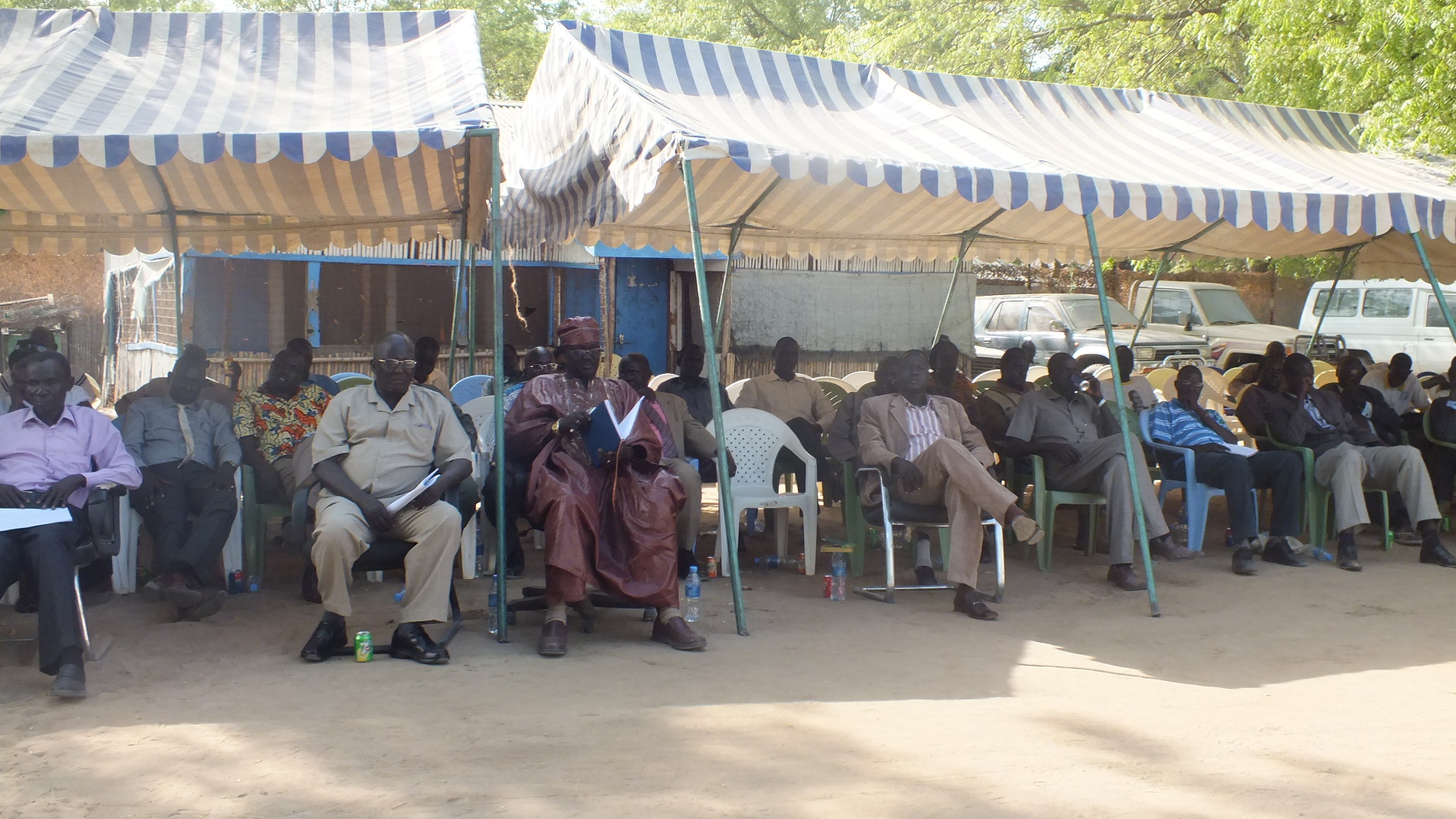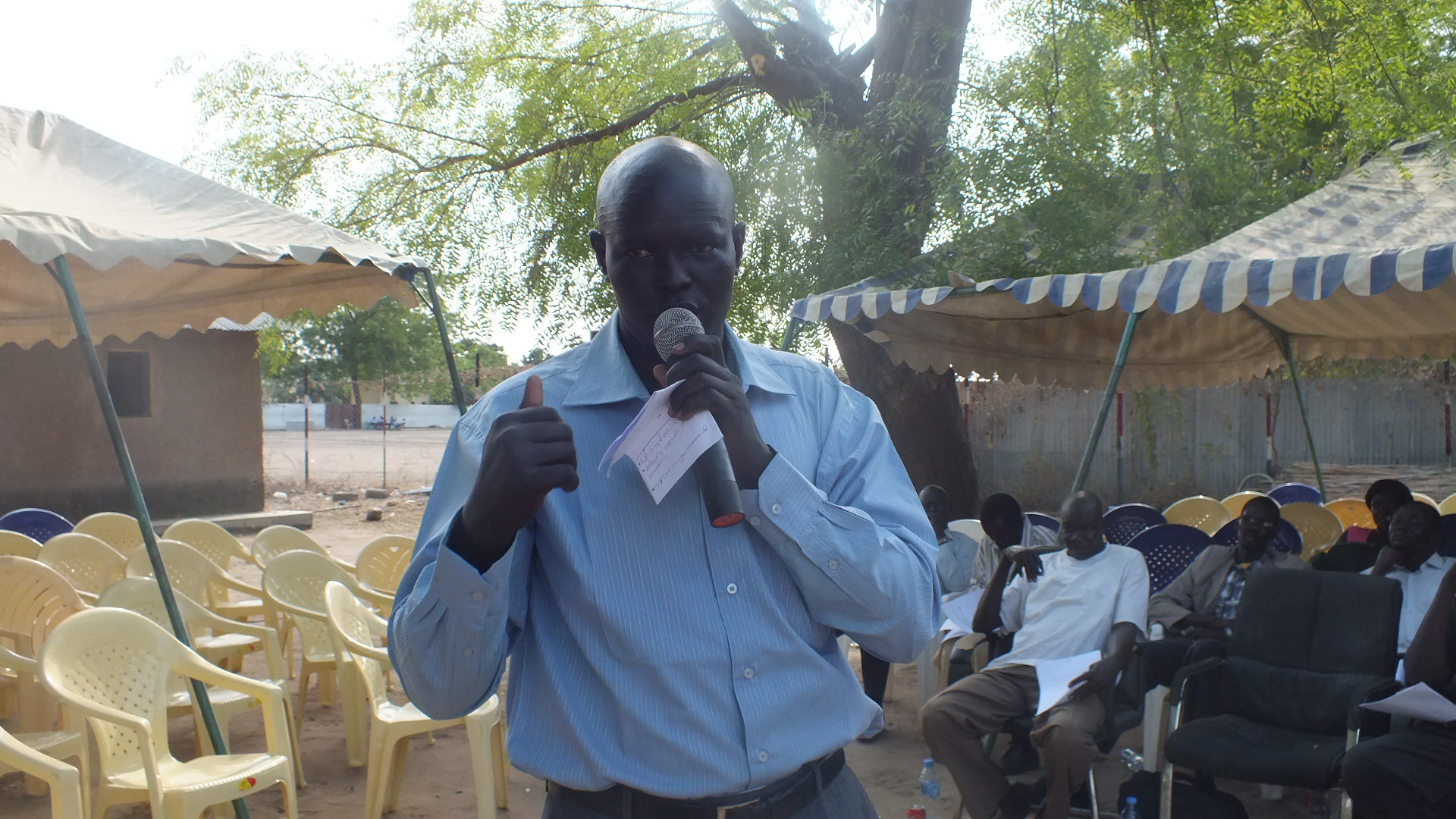South Sudan opposition accused of causing insecurity
February 17, 2013 (BOR) – Top political figures in South Sudan’s ruling party – the SPLM – have again accused the country’s largest opposition party – the SPLM-DC – of supporting insecurity in collaboration with neighbouring Sudan, from which South Sudan seceded in 2011.

The chairperson of Jonglei state’s land commission, Lual Deng, a member of the SPLM, described the SPLM-DC as an enemy of South Sudan, citing incidents from 2010 when rebel fighters caught by the government claimed they were sent by the opposition party.
SPLM-DC, which split from the SPLM in 2009 ahead of elections the following year, is regularly forced to dismiss such charges.
The allegations resurfaced at a meeting of political parties on Saturday to discuss good governance in Bor, the capital of Jonglei state, which was also attended by the United Democratic Party (UDF) and South Sudan National Congress Party (SS-NCP), which was established after the two countries split in two.
Both nations accuse the other of backing rebels in their territory.
Deng accused the SPLM-DC of being “an enemy of South Sudan”, pointing to allegations that rebel fighters caught in 2010 in Pigi county of Jonglei and Paloc county of Upper Nile state were backed by the opposition. This has always been denied by the SPLM-DC, which is led by Lam Akol, a former Sudanese foreign minister.
In the eyes of many South Sudanese, Akol has never shaken his association with Khartoum after he was part of a group that split from SPLM in 1991 at the height of the two-decade civil war.
Akol and Riek Machar, who is now South Sudan’s vice-president and deputy chairman of the SPLM, re-joined the movement ahead of a 2005 peace deal paving the way for secession.
Speaking at the event on Saturday, Deng told the meeting that the SPLM-DC would not win any more seats in government until they shed their association with Akol.
The commissioner of Bor county told the meeting that Akol was using print and broadcast media in Khartoum to preach unfavourable messages about South Sudan.
Tut Chot, who chairs the SPLM-DC in Jonglei state, described opposition parties as a “mirror to the government”.

Both the UDF and SS-NCP representatives at the meeting accused the SPLM government of fraudulently winning the 2010 general elections.
GOOD GOVERNANCE
The meeting, which was called to discuss good governance, resolved that this could be achieved by building strong state institutions which were able to offer better services.
In a seven-page document explaining the political position of SPLM-led government, Jonglei’s minister for local government, Diing Akol Diing, said that realising good governance consisted of three elements: choosing leaders through free and fair elections; equal participation of citizens in both politics and civic life and application of the rule of law to all citizens equally.
“Democracy is the means for the people to choose their leaders and to hold their leaders accountable for the policies [and] of the conduct in the offices”, Ding told those at the meeting, citing South Sudan’s transitional constitution as an example of this.
“In democracy, people are sovereign; they are the highest form of political authority. Power flows from the people to the leaders of the government who holds power temporarily.
“Political parties are vital in democracy, as the constitution in article 36 (1) permitted formation of multi-parties in South Sudan”, he continued.
The deputy governor, Hussein Maar, told the gathering that political parties should segregate citizens on religious, tribal or other grounds.
He said the oldest democracy in the world, referring to ancient Greece, used to have slaves and discriminate against women and other groups, but “today it is people who controls their leaders, not [the] other way around”.
The SPLM continues to dominate politics in South Sudan, with opposition parties holding only a handful of seats in the national and state parliaments.
(ST)
